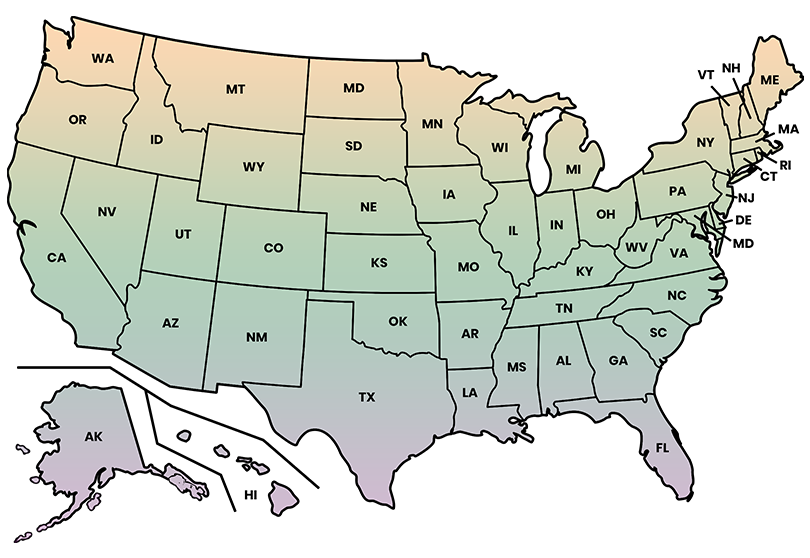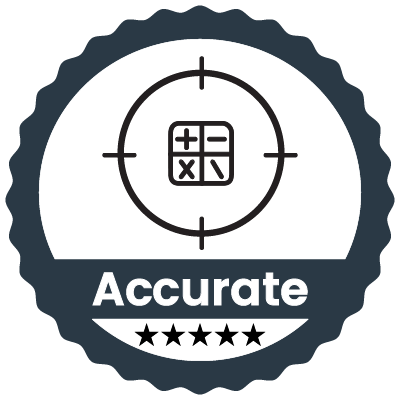Before providing pay stubs to employees and contractors in Massachusetts, it's crucial to understand the relevant laws and regulations that apply to employers in the state. .
This guide aims to explain the payroll requirements and obligations mandated by Massachusetts law to ensure compliance and smooth operations for businesses operating in the state.

Pay stub regulations in Massachusetts
1. Are pay stubs required by law in Massachusetts?
Employers in Massachusetts must provide their employees with pay stubs every payday.
2. How often do you need a pay stub in Massachusetts?
You will need to pay your employees on a semi-monthly basis. As pay stubs are mandatory in Massachusetts, you will need to provide pay stubs every time you pay your employees.
3. What information can be included on a pay stub in Massachusetts?
The following information must be included in employee pay stubs:
- Employee information such as name, last 4 digits of social security number, and address
- Employer information such as name, employer identification number (EIN), and address
- Date of payment (month, day and year)
- Number of hours worked during the pay period
- Pay Information and Tax Exemptions
- Deductions and increases made during the pay period.
- Beginning and ending dates of the pay period.
4. Does Massachusetts have a state income tax?
The State of Massachusetts requires employers to withhold state income taxes from employee paychecks.
5. Are there any other taxes applicable to Massachusetts?
There are no local taxes in the state of Massachusetts.
Information needed to generate pay stubs
To provide employees with accurate pay stubs, the information below is required.
- Head of Household
- Massachusetts Paid Family and Medical Leave - Employee
- Spouse Blindness
- Personal Blindness
- Employer Family Exemption
- Employer Medical Exemption
- Employee Family Exemption
- Employee Medical Exemption
- Employee's total allowances
- Full Time Student
- Employee's exemption status from state withholding
- Filing status and additional state withholding amount
Massachusetts wage and hour laws
In Massachusetts, employers are obligated to comply with wage and hour laws ensuring that non-exempt employees receive fair compensation, including at least minimum wage, appropriate payment for overtime hours worked, adequate meal and rest breaks, and entitlement to accrued paid time-off benefits.
In Massachusetts, employment law includes a variety of regulations concerning wage and hour laws.
Massachusetts Minimum wage
In Massachusetts, businesses are legally obligated to ensure their employees are paid at least the minimum hourly wage as mandated by state regulations.
- For 2025, the basic minimum rate is $15.00 per hour.
- Additionally, the Massachusetts minimum wage must always be at least $0.50 higher than the federal minimum wage.
Overtime pay
In Massachusetts, most employees are entitled to receive 1.5 times their regular hourly rate for any hours worked beyond 40 in a single work week. Unlike some states, Massachusetts does not mandate overtime pay after 8 hours in a day. Certain categories of employees, such as executives, professionals, and some seasonal workers, may be exempt from overtime. However, it's crucial to verify if federal law still necessitates overtime compensation for exempt employees. Regardless of any agreement between an employer and employee, it's impermissible to violate overtime laws.
Massachusetts Meal break
In Massachusetts, employees working over six hours in a calendar day are entitled to a minimum 30-minute meal break, during which they must be relieved of all duties and allowed to leave the workplace. This break can be unpaid, and employers have the authority to mandate that employees take their meal breaks.
Massachusetts rest break
In Massachusetts, employers are not required by law to provide rest breaks for their employees.
Paid time off and leave
Massachusetts employers must offer employees a range of leave benefits, including both mandatory and discretionary options.
| Required Leave | Non-Required leave | |
|---|---|---|
| paid | Unpaid | Paid or Unpaid |
| Sick leave -1 hour of paid sick leave for every 30 hours worked | Under the Massachusetts Paid Family and Medical Leave program, employees can utilize 12 weeks of paid family leave and 26 weeks of paid medical leave to manage their own health conditions. | Vacation leave |
| Jury duty leave-3 days of paid leave | Voting leave | Bereavement leave |
| Military leave | ||
| Small necessities leave - unpaid leave for 24 hours every 12 months | ||
Massachusetts State payroll taxes 2025
In Massachusetts, payroll taxes are classified into the following categories:
- Massachusetts Personal Income Tax(PIT)
- Massachusetts State Unemployment Insurance (UI)
- Massachusetts Paid Family and Medical Leave (PFML)
Massachusetts Personal Income Tax(PIT)
In Massachusetts, state personal income tax rates differ based on an individual's filing status and income level, with filing statuses including Single, Married Filing Separately, Married Filing Jointly, and Head of Household.
In tax year 2024, Massachusetts imposes a 5.0% tax rate on both earned (e.g., salaries, wages, tips, commissions) and unearned (e.g., interest, dividends, capital gains) income. Some specific capital gains are taxed at a rate of 8.5%. Individuals with a Massachusetts gross income of $8,000 or higher are required to file a Massachusetts personal income tax return.
Massachusetts State Unemployment Insurance (UI)
Massachusetts enacted the State Unemployment Tax Act (SUTA) to support individuals facing unemployment by providing unemployment benefits. This legislation enables the state to collect the required funds for administering unemployment insurance benefits to eligible individuals during periods of unemployment.
For 2025, newly subject employers in the construction industry will pay a rate of 5.45%. Employers in the non-construction industry with a positive account reserve percentage between 10.5% and 11% will be charged a rate of 2.13%, as per the UI Tax Rate Schedule D. In Massachusetts for 2025, SUTA (State Unemployment Tax Act) rates fluctuate between 0.83% and 12.65%. The taxable wage base remains consistent at $15,000.
Massachusetts Paid Family and Medical Leave (PFML)
Paid Family and Medical Leave(PFML) in Massachusetts provides up to 26 weeks of paid leave for eligible employees, funded by contributions from both employees and employers. Employers with 25 or more covered individuals from the previous year must contribute to the current workforce, while those with fewer than 25 covered individuals are exempt from employer contributions but must still collect employee contributions.
Contribution Rate Distribution for Employers with 25 or More Covered Individuals
Employers with 25 or more covered individuals are required to contribute 0.88% of eligible wages to the Department of Family and Medical Leave (DFML). This contribution can be divided between covered individuals' payroll deductions and an employer contribution.
- For family leave, up to 100% of the contribution can be deducted from a covered individual's wages (0.18% of eligible wages).
- For medical leave, up to 40% of the contribution can be deducted from a covered individual's wages (0.28% of eligible wages), with the remaining 60% (0.42% of eligible wages) covered by the employer.
Contribution Rate Distribution for Employers with fewer than 25 Covered Individuals
Small employers, those with fewer than 25 covered individuals, must contribute an effective rate of 0.46% of eligible wages for Paid Family and Medical Leave (PFML). They're responsible for withholding funds from covered individuals' wages but aren't required to contribute themselves. However, they have the option to cover some or all of the covered individuals' share.
- For family leave, up to 100% of the contribution can be withheld from a covered individual's wages (0.18% of eligible wages).
- For medical leave, up to 100% of the contribution can also be withheld from a covered individual's wages (0.28% of eligible wages), with no employer share required.
Massachusetts payroll tax filing
- Report of New hire Employees and independent contractors
- Massachusetts personal income tax filing(form 1 and form 1-NR/PY)
- Quarterly employment and wage detail report
Report of New hire Employees and independent contractors
In Massachusetts, employers must comply with federal law by reporting new hires, retired employees, workers' compensation claimants, and independent contractors within 14 days. Failure to comply or inaccurate reporting may result in penalties, including fines up to $25 per individual, with a $500 penalty for conspiracy cases involving intentional withholding or false reporting.
How to report employees and independent contractors new hire in Massachusetts?
Submitting new hire information in Massachusetts offers several options, allowing for flexibility in the reporting process.
| Online | Fax | |
|---|---|---|
| Employees and independent contractors New Hire Report | Address Information: Massachusetts Department of Revenue P.O. Box 55141 Boston, MA 02205 Direct Phone: 617-887-7562 Email: cox@dor.state.ma.us | Fax 1: 617-376-3262 |
Massachusetts personal income tax filing(form 1 and form 1-NR/PY)
The deadline for filing Form 1 (Massachusetts Resident Income Tax Return) and Form 1-NR/PY (Massachusetts Nonresident/Part-Year Tax Return) for the tax year 2024 is on or before April 15, 2025
Quarterly employment and wage detail report
Employers subject to Massachusetts unemployment law are required to make quarterly contributions to the Department of Unemployment Assistance (DUA). Upon submission of the quarterly employment and wage detail report, UI Online automatically computes the amount due for Unemployment Insurance (UI) contributions, EMAC, and workforce training fund. Interest accrues at a rate of 12% per year on any unpaid balance from the quarter's due date until fully paid. To prevent interest charges and penalties, it is advisable to settle all contributions by the specified quarterly due dates.
| Reporting Period | Due Date |
|---|---|
| Quarter 1 | April 30 |
| Quarter 2 | July 31 |
| Quarter 3 | October 31 |
| Quarter 4 | January 31 |
Have all the information handy?
With SecurePayStubs, you can calculate accurate federal and Massachusetts state taxes for your employees and generate pay stubs securely.
Processing payroll manually is complex
As a business owner who runs payroll manually, you will need to keep up with ever-changing payroll laws. You already have a lot on your plate and you might not want to get into the complex process of pay stub generation.
Utilize SecurePayStubs, a reliable paystub generator, , to swiftly create accurate pay stubs for both employees, including precise federal and Massachusetts state tax calculations, and independent contractors. This efficient tool ensures seamless generation of pay stubs in less than 2 minutes. Enter the basic employee and employer information, select a pay stub template for free, and let SecurePayStubs calculate the applicable payroll taxes accurately.
Spend less time generating pay stubs and more on your business growth.
This article has been updated from its original publication date of February 11, 2025.




